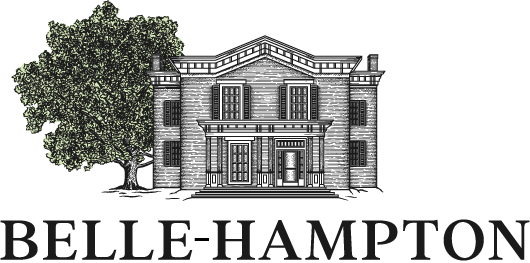Encouraging Entrepreneurship: Developing the Next Generation of Family Enterprise
Encourage those in your family tree
When a family enterprise is created, it starts with the entrepreneurial founder (s) who have an idea and a vision. A small business evolved after hard work, sacrifice, and mistakes along the way. They invested and grew the company, leading to an established, structured entity. But businesses need to change over time to meet challenges, expand into new markets or products, seize new opportunities or make an existing product better, more relevant, or attractive for the prevailing market. How can prior generations instill the entrepreneurial spirit into the next generations? The answer is an intentional plan to develop the upcoming leaders, an educational strategy.
Imbuing knowledge from the founders of the enterprise doesn't happen without intent. It needs to consist of a structured plan not just for individuals but for the family's overall picture to increase the intellectual capital of the family enterprise. Intellectual capital is experiential knowledge achieved by formal education or experience that benefits other family members. Formal education can consist of reading books, listening to multimedia, attending conferences, online education, or an actual degree. Experience can include outside work experience, travel, or life’s know-how.
Some recommendations for the educational plans consist of the following. For books, consider P. T. Barnum: America's Greatest Showman by Philip B. Kunhardt Jr., Philip B. Kunhardt III, and Peter W. Kunhardt. Barnum was a genius of ideas and showmanship, with many lessons about risk, failure, and success. Or Andrew Carnegie’s autobiography about his rise to achievement and philanthropy in his second act. A favorite of mine since I love history, American Entrepreneur: How 400 Years of Risk-Takers, Innovators, and Business Visionaries Built the U.S.A. by Willie Robertson, William Doyle. It captivates the audience with stories from pre-colonial days until today's successful entrepreneurs in America.
For podcasts, the “How I Built That by Guy Raz” series are inspirational stories on how companies were started. Some of my favorites include the Spanx story with C.E.O. Sara Blakely. She began by selling fax machines door to door but desperately wanted to change her life. As a result, she became the youngest female billionaire in America. And Airbnb: Joe Gebbia couldn't afford his rent, so his idea was to offer an air mattress to convention-goers in town. He was initially calling his company Airbed and Breakfast. What seemed like crazy ideas became disrupters in their industry.
Watching multimedia narratives are another way to imbue the entrepreneurship mentality. The Airbnb tale is available on youtube if that format is preferred. Other inspirational scenarios on video include the Ben and Jerry story about how hard work and a little luck paid off. They turned a seeming flaw in taste testing into their unique ingredients, chunks of flavor. Zappos creator Hsieh describes how he and his friends built their brand. Their purpose is simple, to live and deliver WOW. (above and beyond what's expected). These examples show how it began with an idea, but it only succeeded through hard work.
A conference we enjoy attending is the Family Business Magazine’s Transitions. It is an atmosphere to discuss real-life challenges and real-life solutions with other family enterprises in a safe harbor. The presentations are done in a panel format for honest story discussions. Another venue is South East Family Office Forum (SEFOF). It provides education, networking, and learning opportunities for family offices and-owned enterprises, as well as a place to exchange great ideas.
Formal education is another way to develop the next generation. Chicago Booth has M.B.A., Executive M.B.A., and specific sessions for Family Businesses. Its mission is to create knowledge with enduring impact and educate current and future leaders. Other colleges, such as U.N.C., have Family Enterprise Center, which states their mission to provide next-generation family business leaders with the expertise and resources to develop entrepreneurial, sustainable families.
However, don’t exclude other forms of education. Experiential learning through travel in America and abroad can expose family members to different cultures and perspectives. The next generation can learn about Agriculture in Ireland or Engineering in Japan. It could be a mission trip to support a philanthropic effort or understand conservation in Belize by exploring the Reef. There are numerous experiences to broaden knowledge or boost self-esteem and self-reliance.
Entrepreneurship is only one topic of a family's educational strategic plan. Belle Hampton Consulting can assist in constructing, implementing, and tracking the development plan. Filled with resources in all facets of education, such as governance, succession, and general development, it is a great starting point for every family enterprise looking at growing their intellectual capital, something that is uniquely Belle Hampton’s consulting. For more information, contact us at madeline@belle-hampton.com.

